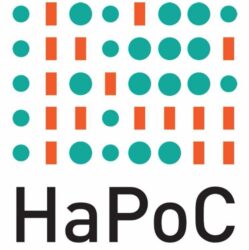3rd Symposium for the History and Philosophy of Programming
25 June 2016
Paris, France
We are happy to announce the third Symposium for the History and Philosophy of Programming to be held on June 25, 2016 in Paris. This symposium follows the first and second editions which were organized in 2012 and 2014 respectively. It is supported by the DHST/DLMPS Commission on the History and Philosophy of Computing and the CNAM. This edition is an affiliated event of Computability in Europe 2016 which will be held the week after HaPoP-3.
One major challenge throughout the history of programming is the development of an interface between humans, software and hardware. It has been the task of the so-called operating system to: maintain a file system; regulate access to resources; synchronize operations; etc. Today, Operating Systems are usually equipped with Graphical User interfaces (GUI) designed to give the “user” a “friendly” experience thus hiding – and sometimes even rendering inaccessible – much of the underlying structure and features of the computing machinery. In which way is this changing our relation to machines and what the unintended epistemic consequences are, is still to be assessed.
The aim of the current symposium is to offer an opportunity for historical and philosophical reflection on operating systems and the programs they coordinate. Our approach is interdisciplinarity and openness towards different fields relevant to HaPoC. We were and are strongly convinced that such trans- and interdisciplinarity is necessary if one wants to reflect on a discipline such as computer science with its multidimensional nature. The current symposium will be organized in a similar manner and invites researchers coming from a diversity of backgrounds, including historians, philosophers, logicians and computer scientists who want to engage with topics relevant to the history and philosophy of programming and more specifically that of operating systems.
CONTACT AND INFORMATION:
For further information please contact us here.
Call for Papers
Topics of the symposium include but are not restricted to historical and philosophical reflections on:
• Origin, evolution and future of OSs
• Design and Epistemology of User Interfaces
• Principles of Data Access, Control and Sharing, especially in relation to OSs (e.g. the Bell-La Padula model)
• Privacy and Security in OSs
• Batch processing and time sharing systems
• Models, problems and techniques of concurrency, parallelism and distributed systems
• Open source vs corporate software
• Programming paradigms and techniques (e.g. pair-programming)
SUBMISSION DETAILS:
We cordially invite researchers working in a field relevant to the main topics of the symposium to submit an abstract of 500 words to:
https://easychair.org/conferences/?conf=hapop3
Abstracts must be written in English. Please note that the format of uploaded files must be .pdf or .doc.
In order to access the submission page, the creation of an EasyChair account will be required. Please notice that what is called “abstract” in the EasyChair “Title, Abstract and Other Information” section corresponds to the short abstract of this call, and what is called “paper” in the EasyChair “Upload Paper” section corresponds to the extended abstract of this call.
Abstract should be submitted at the latest by April 14, 2016.
Committees
Symposium chairs:
Liesbeth De Mol (CNRS, UMR8163)
Raphaël Fournier-S’niehotta (CNAM)
Baptiste Mélès (CNRS, UMR7117)
Giuseppe Primiero (Middlesex University)
Scientific Committee:
Maarten Bullynck (Université de Paris 8)
Martin Campbell-Kelly (University of Warwick)
Liesbeth De Mol (CNRS, UMR 8163 STL)
Gilles Dowek (INRIA, Laboratoire Spécification et Vérification)
Raphaël Fournier-S’niehotta (CNAM)
Jean-Baptiste Joinet (Université Jean Moulin)
Baptiste Mélès (CNRS, UMR 7117 Archives Henri-Poincaré)
Camille Paloque-Berges (CNAM), TBC
Maël Pegny (IHPST, Université Paris 1 Panthéon-Sorbonne)
Tomas Petricek (University of Cambridge)
Giuseppe Primiero (Middlesex University)
Jacques Printz (CNAM), TBC
Important dates
Submission deadline: March 31, 2016
Notification Deadline: May 6, 2016
Location
We are very honoured that CNAM will be hosting HAPOP-3.
Details of the location are as follows:
CNAM
Montgolfier Building
Salon d’honneur
Room number 37-1-50
Entrance number 37, Floor 1, Room 50
2, rue Conté
75003 Paris
Métro: Arts et métiers (lines 3 and 11)
Speakers
We will have three invited speakers for HAPOP-3:
Gaël Duval (Ulteo)
Jean-Gabriel Ganascia (LIP6, Université de Paris 6)
Warren Toomey (Tafe, Queensland, Australia)
Program HaPoP-3, 25 June 2016
The book of abstracts is available here
8.50-9.00: Introduction
9.00-10.00: Warren Toomey, UNIX: Building a Development Environment from Scratch, audio
10.00-10.20: Break
10.20-11.55: Historical explorations of operating systems
10.20- 10.55: Maarten Bullynck, An initial investigation into early operating systems
10.55-11.30: Gauthier van den Hove, The design of the “THE” operating systems
11.30-12.05: Stephen Kell, The operating system: why there should be one (or two)
LUNCH
13.20-14.30: Historical explorations of programming and their consequences
13.20-13.55: Rabia Arif and Giuseppe Primiero, Data Validation: a historical comparative study from the business computing industry
13.55-14.30: Julian Rohrhuber, The sans-papier as a first-class citizen. Tracing the object as a symptom in and of a history of problems
14.30-14.45: Break
14.45-16.30: Formal aspects of operating systems
14.45-15.20 Cliff Jones and Troy Astarte, Formal semantics of ALGOL 60: a comparison of four descriptions
15.20-15.55 Selmer Bringsjord, Atriya Sen and Naveen Govindarajulu, Ethical operating systems
15.55-16.30 Robin Hill, Elegance in software
16:30-16:45 Break
16.45-17.45: Round table: Debate on the development of a French “sovereign” operating system, with Gaël Duval, Jean-Gabriel Ganascia (talk), Warren Toomey and TBA.
Registration
In order to register for HaPoP-3, please send a mail to us indicating your name and affiliation. Please note that registration is free but required in order to participate to the symposium.
- In progress
